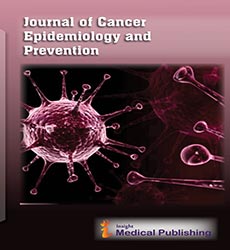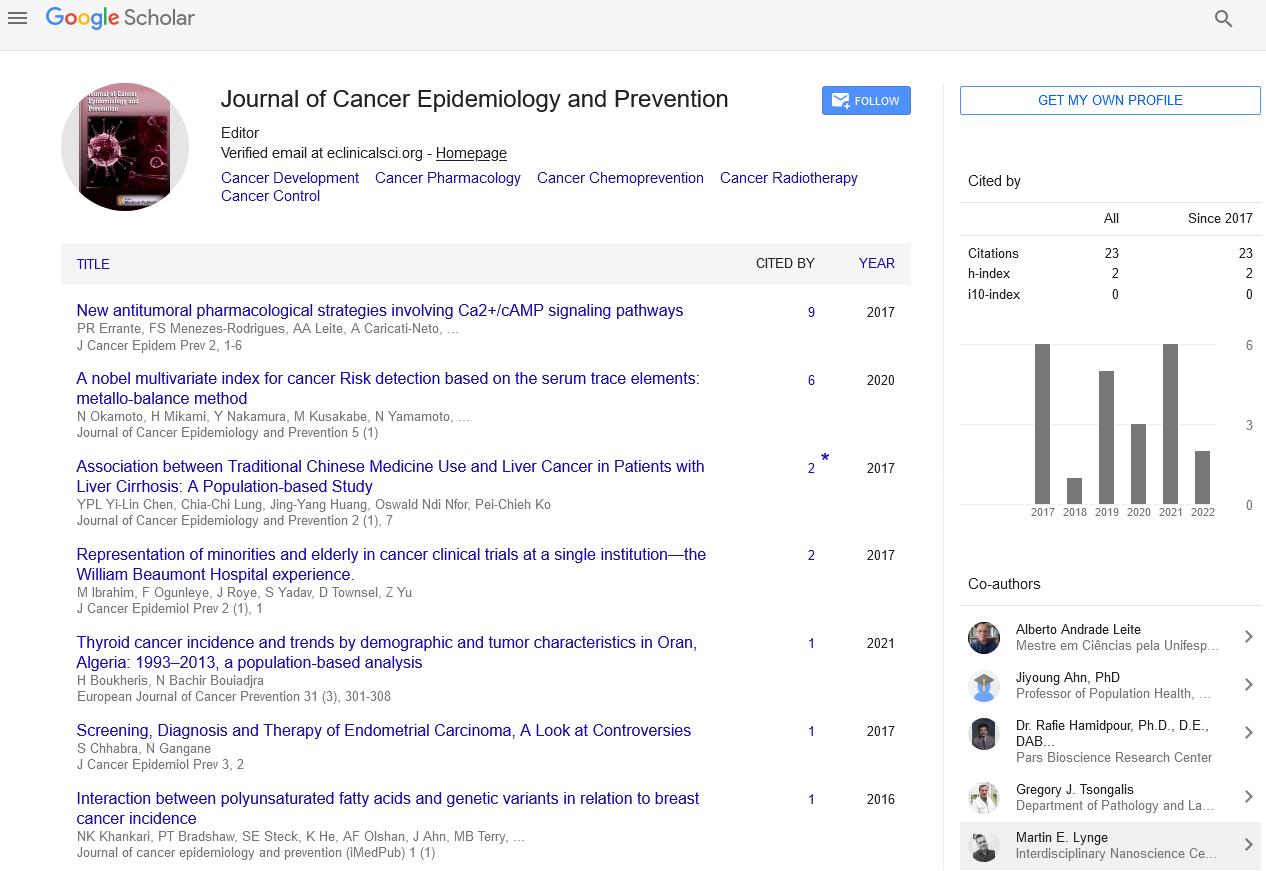Reza Nuri*
Department of Exercise Physiology, Kish International Campus, University of Tehran, Iran
- *Corresponding Author:
- Reza Nuri
Department of Exercise Physiology, Kish International Campus, University of Tehran, Iran
Tel: +98 10 73 19 10 12
E-mail: Nurirez@gmail.com
Received date: Jun 14, 2021; Accepted date: Jun 28, 2021; Published date: July 05, 2021
Citation: Reza Nuri (2021) Cancer patients and research during COVID-19 pandemic. Vol.6 No.3.1
Commentary
The novel coronavirus, also known as SARS-Cov-2 or COVID-19
has become a worldwide threat and the major healthcare
concern of the year 2020. Cancer research was directly affected
by the emerging of this disease. According to some Chinese
studies, cancer patients are more vulnerable to COVID-19
complications. This observation led many oncologists to change
their daily practice in cancer care, without solid evidence and
recommendations. Moreover, the COVID-19 manifestations as
well as its diagnosis are particular in this special population. In this
review paper we expose the challenges of cancer management in
the era of SARS-CoV-2, the epidemiological, clinical, pathological
and radiological characteristics of the disease in cancer patients
and its outcomes on this population. Finally, we focus on
strategies that are followed in cancer management with review
of national and international guidelines.
The COVID-19 pandemic affected health care systems globally
and resulted in the interruption of usual care in many health care
facilities, exposing vulnerable patients with cancer to significant
risks. Our study aimed to evaluate the impact of this pandemic on
cancer care worldwide.
Cancer is a serious disease that affects the lives of millions
around the globe.1 Because of the nature of the disease and
its treatment, patients with cancer are required to visit health
care facilities more than patients with other diseases. The
treatment of patients with cancer requires a full involvement of
multidisciplinary teams throughout the disease trajectory from
diagnosis to survivorship or end-of-life care.2 During the disease
course, patients require multiple hospital visits for assessment by
different clinicians and to undergo many laboratory or imaging
tests for diagnosis, staging, or monitoring of treatment effects
in addition to different types of procedures and interventions.
Besides medical providers, patients with cancer need the help
of many other disciplines, such as social workers, psychologists,
educators, and other support services. Once diagnosed with
cancer, patients need continued monitoring and support during
and after treatment.
Department of Thoracic Oncology, Cancer Center of the Fifth
Affiliated Hospital of Sun Yat-sen University, Zhuhai, China;
2Department of Otorhinolaryngology of the Fifth Affiliated
Hospital of Sun Yat-sen University, Zhuhai, China;
3Department of Cardiothoracic Surgery, The Fifth Affiliated
Hospital of Sun Yat-sen University, Zhuhai, China Many cancer
researchers have been able to pivot portions of their research
either in the laboratory or in the clinic—to try to better understand
COVID-19 and find ways to treat the disease,” said James Gulley,
M.D., Ph.D., head of the immunotherapy section of NCI’s Center
for Cancer Research (CCR).
The first wave of COVID-19 infections caused institutions to
severely restrict or stop laboratory and clinical research for several
months. As infections subsided during the summer, institutions
allowed at least partial resumptions of research. Clinical studies
generally, but not universally, resumed enrollment. Resumption
of clinical studies did not occur universally. The second and, to
a greater extent, third waves of infections in the fall of 2020
paused or even reversed reopening of research activities. Many
institutions reinstated restrictions on clinical studies without
direct benefits to participants. Onsite laboratory research
continued as permitted within limits of new stay-at-home orders
imposed by local governments, and most institutions urged or
required researchers performing computational work to stay at
home. These restrictions on research activities may not end until
2022.
Evidence of the extent of the impact of the pandemic on cancer
care in African countries is beginning to emerge. While the African
continent is arguably the least affected in terms of the absolute
number of confirmed COVID-19 cases and deaths, the real impact
of the pandemic on cancer management and broader health
services may not be as mild. The implications of these disruptions
are grim in resource- limited settings, particularly in the African
region, where cancer programmes are typically under-resourced.
As the pandemic evolves and movement restrictions are eased,
there is a need for the timely and safe restoration of oncological
care and research.

